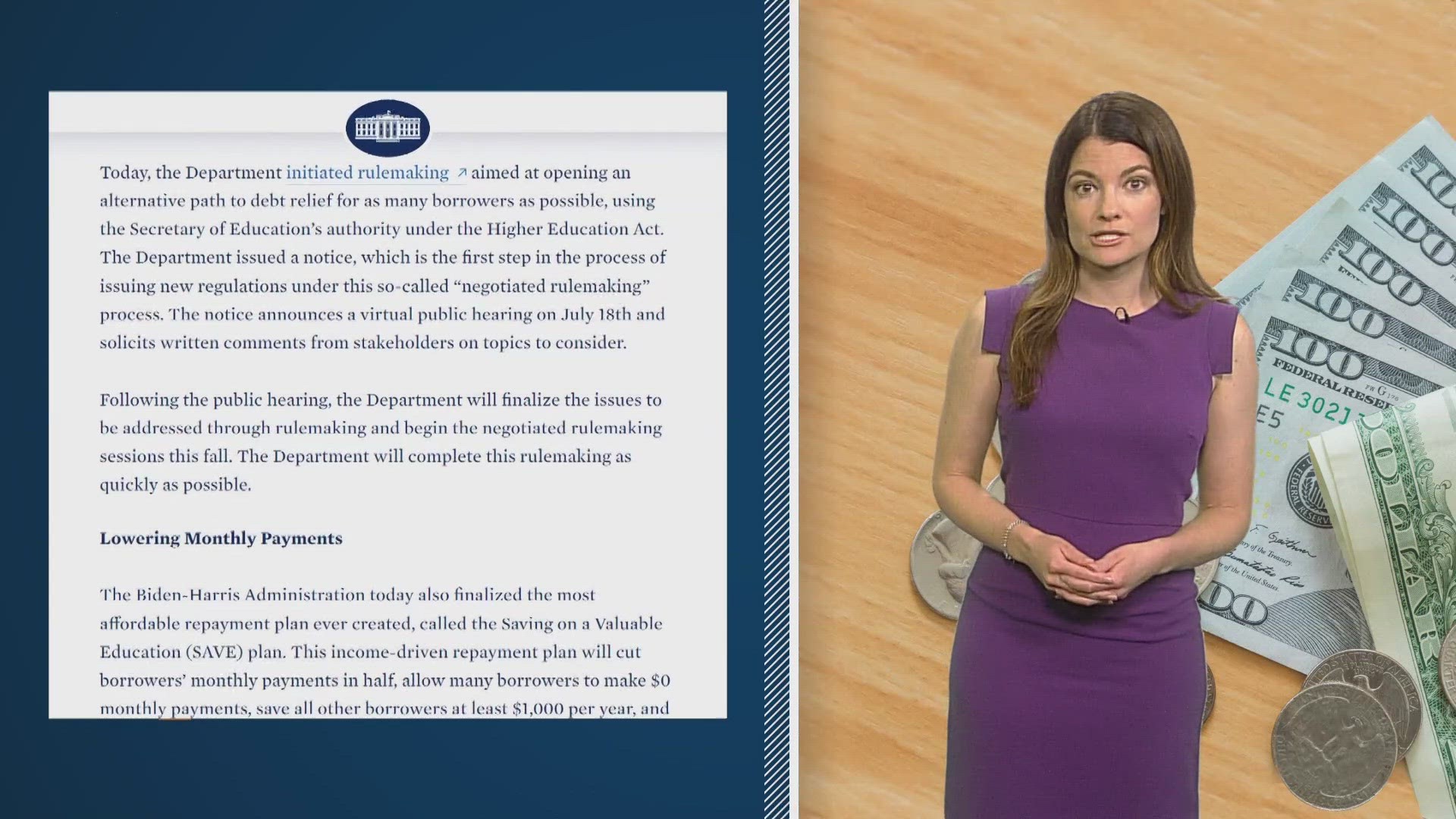INDIANAPOLIS — President Joe Biden is trying a new plan to pass student loan forgiveness after the Supreme Court stopped his first approach via the Heroes Act.
Now, he is trying to achieve federal student loan forgiveness through the Higher Education Act.
Dr. Elizabeth Bennion, chancellor's professor of political science and director of community engagement at Indiana University South Bend, said the act was designed to make higher education affordable for every individual, regardless of their ZIP code, income and family background.
"At least one thing that it did was to set up a program of scholarships, grants and loans to ensure that college was affordable. That was the goal, and that's why it's being considered now as part of President Biden's plan B for loan forgiveness," Bennion said.
She added that the Higher Education Act covers existing federal loan and forgiveness programs.
"Many Democrats, including individuals like Elizabeth Warren, had encouraged President Biden to use the Higher Education Act initially to engage in broad forgiveness of loans because the Act does empower the Secretary of Education to pay, waive or release loans," Bennion said.
Going this route involves a rulemaking process.
In a nutshell, that means a virtual public hearing will take place July 18, with the department finalizing issues and rulemaking sessions this fall.
Negotiators who have a stake in the game also need to be chosen. For borrowers, that means it is far from a done deal.
"Ultimately, the same opposition will come into play in the form of potential lawsuits against the new regulations, arguing that the department has exceeded its authority," Bennion said.
In the meantime, federal student loan interest resumes on Sept. 1, 2023, with payments starting in October.
To help burdened borrowers, the White House created a 12-month on-ramp program.
"People who do miss a payment won't be reported to creditors, they won't be considered delinquent, and it won't negatively impact their credit rating," Bennion said.
While interest will accrue, it will not be capitalized at the end of the period.
The White House also finalized an income-driven repayment plan that cuts in half the amount borrowers have to pay each month, from 10% to 5% of discretionary income.
If you think you might qualify, the time to contact your servicer is before interest resumes.

